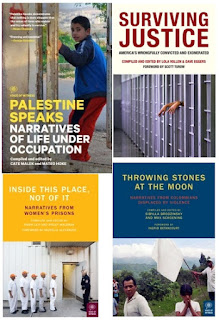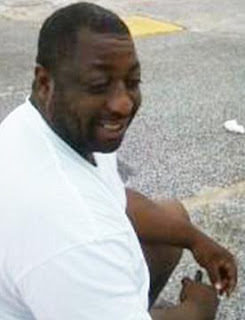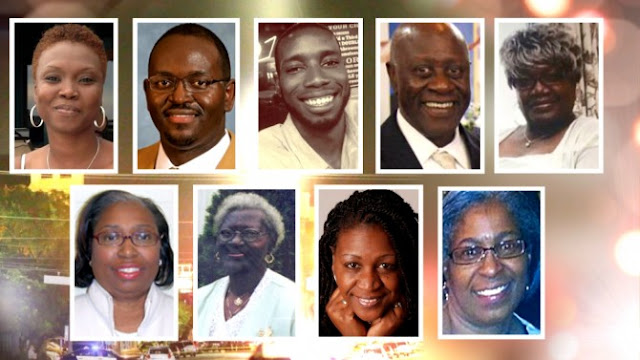I arrived about ten minutes late to find the door locked, not a great surprise considering the east-end-of-downtown location of the church and that it was evening, and rang the bell. A moment later, a friendly black woman wearing a colourful tie-dye shirt opened the door, introduced herself as Veronica, and welcomed me in.
She led me into the sanctuary - the rented space seats at least 400 just on the main floor, and there were only about fifty people present. I took a seat and discovered I had arrived just in time for the start of the sermon. Bruce, the pastor, was articulate, friendly and engaging. The service went on from there, not that different from what I experienced growing up Baptist and then attending Anglican churches as an adult. Prayer, Bible readings, hymns and contemporary songs (all familiar to me), sermon, communion, announcements. Across the board, the content was as evangelical as it gets.
In fact, if someone showed you a videotape of the service, leaving out announcements and a few identifying details, you might reasonably think this was any one of the many evangelical churches across our country. In reality, it's the London congregation of the Metropolitan Community Church, a denomination that had its "origins serving gay, lesbian, bisexual and transgendered people" and which has now "become an inclusive and affirming congregation that actively welcomes all people".
Dare I suggest that this church is more evangelical - more full of good news - than evangelical usually gets?
In many churches, there are limits as to who is embraced, barriers keeping some out, conditions one has to meet, beliefs people have to agree with to take part. Here, everyone is welcome, all are embraced, the doors are flung wide open. That's good news! And here, in line with Jesus' model of going to those at the margins of his society, this church is about those at the margin of society - and everyone else - being welcomed and embraced.
The service itself was anti-climactic. It didn't have the showiness of seeker churches, the cool of hipster services, or the fervor of an old-fashioned tent revival. Sorry to break it to you, but it wasn't fabulously gay either. Embrace of all of God's creation with a focus on Jesus doesn't make for an exciting church; it makes for a local body of Christ where "come as you are" is real rather than a trite saying, where "just as I am" applies to everyone, where our common need for Jesus' love and God's mercy levels the ground beneath us, where we meet together to praise God and together learn what it means to be apprentices of Jesus.
One thing did stand out about the service, something that in my years of church life I've not seen before. During communion, after the priest or helper gave the bread and wine to the parishioner, they also gave a blessing. Not a simple "Lord bless you and keep you" or similar phrase and then on to the next person. Instead, they put their arms around each and every parishioner and said a prayer of blessing, different for each person.
Seeing this, and as it came closer to my turn to receive communion, I wondered if I as an outsider would also be given a blessing. I was, and part of it included these words:
"May the love you experience here travel with you wherever you go."
Amen.
 "Voice of Witness (VOW) is a non-profit dedicated to fostering a more nuanced, empathy-based understanding of contemporary human rights crises. We do this by amplifying the voices of individuals most closely affected by injustice, and by providing curricular and training support to educators and invested communities."
"Voice of Witness (VOW) is a non-profit dedicated to fostering a more nuanced, empathy-based understanding of contemporary human rights crises. We do this by amplifying the voices of individuals most closely affected by injustice, and by providing curricular and training support to educators and invested communities."












